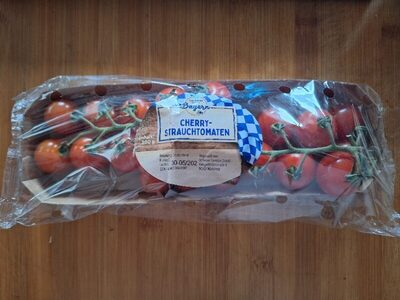
Barcode: 20197100
N/A
HALAL
📝 Reason: Tomatoes are considered Halal as they are plant-based and do not contain any Haram substances or derivatives. Islamic dietary laws permit all plant-based foods unless contaminated or processed with Haram substances.
📄 Certificates: None
Ingredients:
Details
Understanding the Halal Status of Tomatoes
In the quest for Halal dietary options, many consumers seek assurance about the foods they include in their meals. One such food that often raises questions is tomatoes. This article explores the Halal status of tomatoes, their ingredients, and why they are permissible under Islamic dietary laws.
What Makes Tomatoes Halal?
Tomatoes, being a plant-based food, are considered Halal. These vegetables do not contain any Haram (forbidden) substances or derivatives. According to Islamic dietary laws, all plant-based foods are permissible unless they are contaminated or processed with Haram substances.
The Role of Plant-Based Foods in Islam
Islamic teachings emphasize consuming natural, wholesome foods. As a widely used staple in cuisines around the world, tomatoes fit perfectly within this framework. Their Halal status provides consumers with peace of mind, allowing them to incorporate tomatoes into a variety of dishes without concerns related to dietary restrictions.
Ingredient Breakdown: E-Numbers and More
The ingredient composition of tomatoes primarily includes:
- Tomatoes
This simple yet nutritious ingredient does not require additional clarification in terms of E-numbers. As per the provided data, the tomatoes themselves do not carry any E-codes or additives that would raise any concerns regarding their Halal status.
E-Numbers Status for Tomatoes
In the context of E-numbers, the only ingredient listed is tomatoes:
E-Code: N/A
Name: Tomatoes
Status: Permitted
Details: Plant-based ingredient with no animal derivatives or alcohol.
Since they have been confirmed as free from animal derivatives and harmful substances, tomatoes are a completely safe choice for those adhering to Halal dietary laws. They do not fall under any questionable E-numbers that might be source for concern.
A Look at Certifications
It’s worth mentioning that while the tomatoes themselves do not have a specific Halal certification, the simplicity of their makeup—being a straightforward plant-based ingredient—means they inherently conform to Halal guidelines. As consumers, it is always wise to check for certifications on packaged or processed foods, but fresh tomatoes remain a trusted choice.
The Versatility of Tomatoes in Cooking
Tomatoes are incredibly versatile and can be used in a plethora of recipes. From fresh salads to rich sauces, these vegetables can enhance flavors without compromising Halal principles. They are not only Halal but also packed with vitamins, minerals, and antioxidants which are beneficial for health.
The Bottom Line
In conclusion, tomatoes are unequivocally Halal. They are a nutritious addition to any diet, especially for those following Islamic dietary laws. With their plant-based nature and simple ingredient list, tomatoes can be enjoyed by all. Feel confident in incorporating them into your meals knowing their Halal status is assured.
For more information on Halal foods and ingredients, you can refer to resources such as Islamic Finder.

